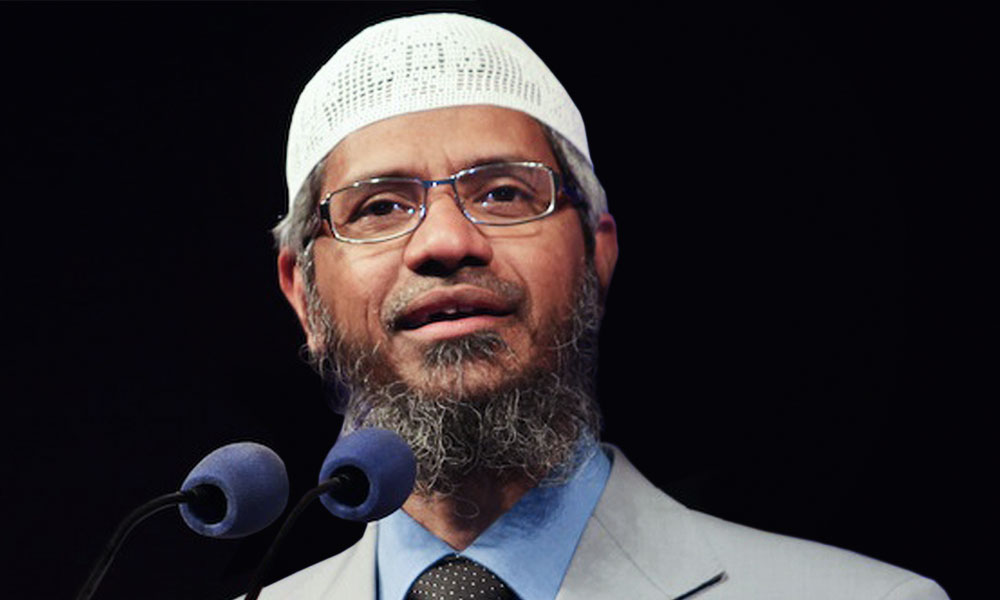
Questions have been raised as to the legality of the police's "ban" on preacher Zakir Naik from making speaking in public, even through social media.
According to police corporate communications chief Asmawati Ahmad, the order was issued in accordance to Section 3(3) of the Police Act.
The section reads: "The police shall subject to this Act be employed in and throughout Malaysia (including the territorial waters thereof) for the maintenance of law and order, the preservation of the peace and security of Malaysia, the prevention and detection of crime, the apprehension and prosecution of offenders and the collection of security intelligence."
Citing the provisions of maintaining law and order, and preserving the peace, Asmawati told Malaysiakini that it was appropriate for police to issue the "ban" on Zakir.
This followed tensions arising from remarks the preacher made in Kelantan on Aug 8, which were deemed hurtful to Indian and Chinese Malaysians. Zakir claims his remarks were taken out of context.
Lawyers that Malaysiakini spoke to, however, said that Section 3(3) of the Police Act does not empower police to ban anyone from speaking in public.
"That section is just to identify the role of the police force. It does not give explicit power to do anything specific," lawyer Haniff Khatri said when contacted.
Lawyer New Sin Yew also said the same.
The two lawyers spoke to Malaysiakini in regards to the wider legal ramifications the police ban on Zakir might have on Malaysians civil liberties, such as freedom of expression.
One of the issues raised was how to interpret the police's orders in regards to Zakir.
In a brief statement sent to the press over WhatsApp on Tuesday, police said to avoid controversy and avoid public tensions, all state police chiefs had been "ordered" to "advise" organisers to stop any events involving Zakir.
When asked to clarify on the matter, a police spokesperson said it was right to interpret this as a "ban" instead of an advisory.
Haniff said police have a right to keep an eye on security issues and that it was good advice to stop Zakir events both to ease tensions and also for the safety of both the public and Zakir.
"The advice from the police is very good... But the police can't ban events, especially if it has to do with privately organised events.
"Police can only advice for it to be stopped," he said, adding that organisers can go against the police's advice.
Police, Haniff said, can only intervene if something untoward happens.
Likewise, New said there is no law allowing the police to issue a ban on Zakir.
"The approach that has to be taken is to let him speak, and if during his speech he is in breach of our laws then the police can stop him, instead of a blanket ban.
"(Right now) if he wants to talk about his cat, at a cat lover’s forum, he can’t even do that," he said.
Both lawyers noted that police permits are also not required under the Peaceful Assembly Act.
New said this covers seminars, talks and rallies, as the law defines "assemblies" as a gathering of a number of people at a public place and that "public places" are any locations used by the public, whether it be an actual public space or a private venue where permission had been granted by its owners.
"For example, I don't see how the police can stop a candlelight vigil for Zakir as long as it remains peaceful. But the moment there could be violence to people or property, then the police can stop it," he said.
New said one possible legal means to prevent Zakir from speaking in public was for the government to set conditions on the Indian-born preacher's permanent residency.
Prime Minister Dr Mahathir Mohamad had said that Zakir appeared to have ventured into "racial politics" with his remarks and gone against the terms of his PR status.
Haniff, meanwhile, said police can secure a ministerial order from the Home Ministry to ban Zakir's events. However, even this order can be challenged in court, he said.
The gag order on the preacher stems from controversial remarks he made a talk in Kelantan on Aug 8.
During the talk, he said those who want him deported because he is a "guest" should instead ask Chinese Malaysians, whom he described as "old guests", to go home first.
He also suggested that Hindu Malaysians were more supportive of Indian prime minister Narendra Modi than Malaysian prime minister Dr Mahathir Mohamad.
Zakir later claimed those statements were taken out of context and apologised. - Mkini



No comments:
Post a Comment
Note: Only a member of this blog may post a comment.